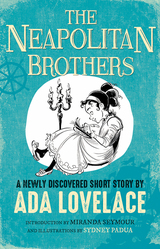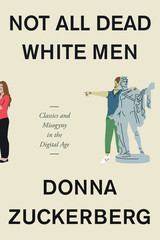4 start with N start with N


Since its publication, fans have speculated on the novel’s authorship, and it is now believed to be by theater director August Klingemann, who first staged Goethe’s Faust. Organized into sixteen separate nightwatches, the sordid scenes glimpsed through parted curtains, framed by door chinks, and lit by candles and shadows anticipate the cinematic. A cross between the gothic and the romantic, The Nightwatches of Bonaventura is brilliant in its perverse intensity, presenting an inventory of human despair and disgust through the eyes of a bitter, sardonic watcher who draws laughter from tragedy.
Translated by Gerald Gillespie, who supplies a fresh introduction, The Nightwatches of Bonaventura will be welcomed by a new generation of English-language fans eager to sample the night’s dark offerings.

The star of Northanger Abbey is seventeen-year-old Catherine Morland, Jane Austen’s youngest and most impressionable heroine. Away from home for the first time, on a visit to Bath with family friends, Catherine, a passionate consumer of novels (especially of the gothic variety), encounters a world in which everything beckons as a readable text: not only books, but also conversations and behaviors, clothes, carriages, estates, and vistas. In her lively introduction to this newest volume in Harvard’s celebrated annotated Austen series, Susan Wolfson proposes that Austen’s most underappreciated, most playful novel is about fiction itself and how it can take possession of everyday understandings.
The first of Austen’s major works to be completed (it was revised in 1803 and again in 1816–17), Northanger Abbey was published months after Austen’s death in July 1817, together with Persuasion. The 1818 text, whose singularly frustrating course to publication Wolfson recounts, is the basis for this freshly edited and annotated edition.
Wolfson’s running commentary will engage new readers while offering delights for scholars and devoted Janeites. A wealth of color images bring to life Bath society in Austen’s era—the parade of female fashions, the carriages running over open roads and through the city’s streets, circulating libraries, and nouveau-riche country estates—as well as the larger cultural milieu of Northanger Abbey. This unique edition holds appeal not just for “Friends of Jane” but for all readers looking for a fuller engagement with Austen’s extraordinary first novel.

A Times Higher Education Book of the Week
A virulent strain of antifeminism is thriving online that treats women’s empowerment as a mortal threat to men and to the integrity of Western civilization. Its proponents cite ancient Greek and Latin texts to support their claims—from Ovid’s Ars Amatoria to Seneca and Marcus Aurelius—arguing that they articulate a model of masculinity that sustained generations but is now under siege. Not All Dead White Men reveals that some of the most controversial and consequential debates about the legacy of the ancients are raging not in universities but online.
“A chilling account of trolling, misogyny, racism, and bad history proliferated online by the Alt-Right… Zuckerberg makes a persuasive case for why we need a new, more critical, and less comfortable relationship between the ancient and modern worlds in this important and very timely book.”
—Emily Wilson, translator of The Odyssey
“Explores how ideas about Ancient Greece and Rome are used and misused by antifeminist thinkers today.”
—Time
“Zuckerberg presciently analyzes these communities’…embrace of stoicism as a self-help tool to gain confidence, jobs, and girlfriends. Their adoration of men like Marcus Aurelius, Epictetus, and Ovid…is founded in a limited and distorted interpretation of ancient philosophy…lending heft and authority to sexism and abuse.”
—The Nation
“Traces the application—and misapplication—of classical authors and texts in online communities that see feminism as a threat.”
—Bitch Media
READERS
Browse our collection.
PUBLISHERS
See BiblioVault's publisher services.
STUDENT SERVICES
Files for college accessibility offices.
UChicago Accessibility Resources
home | accessibility | search | about | contact us
BiblioVault ® 2001 - 2024
The University of Chicago Press









